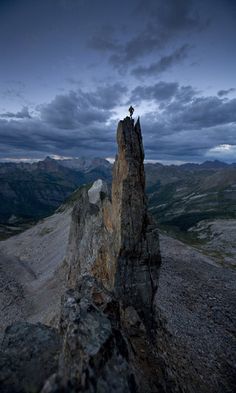For in the day of trouble He will conceal me in His tabernacle; in the secret place of His tent He will hide me; He will lift me up on a rock.
(Psalm 27:5)
 The day of trouble. Sounds ominous. And the Hebrew word for trouble has darker translations: calamity, disaster, and wickedness are the three most used. Here are the other occurrences of this specific phrase.
The day of trouble. Sounds ominous. And the Hebrew word for trouble has darker translations: calamity, disaster, and wickedness are the three most used. Here are the other occurrences of this specific phrase.
May the LORD answer you in the day of trouble! May the name of the God of Jacob set you securely on high! (Psalm 20:1)
How blessed is he who considers the helpless; The LORD will deliver him in a day of trouble. (Psalm 41:1)
Near is the great day of the LORD, near and coming very quickly; listen, the day of the LORD! In it the warrior cries out bitterly. A day of wrath is that day, a day of trouble and distress, a day of destruction and desolation, a day of darkness and gloom, a day of clouds and thick darkness, a day of trumpet and battle cry against the fortified cities and the high corner towers. ( Zephaniah 1:14-15)
There are two types of the day of trouble. The first is where our enemies seek our lives; man against man, which could escalate into nation against nation. The second day of trouble is God’s Day of Trouble—and it indeed is much more perilous than the other, for none shall escape this one, except for those He has delivered.
He will conceal me in His tabernacle. In the secret place of His tent He will hide me.
The word conceal in Hebrew also means to treasure. So not only are we hidden, but we are treasured. And the word for secret place is not only a place of secrecy and concealment, but of safety, shelter and protection. If the LORD hides you, then you are truly safe.

He will lift me up on a rock.
We have moved from a safe, secure place to being out in the open. What happened?
Since it is the LORD Who is doing the lifting, His protection is the same. Over and over in Scripture we see that exalting oneself is dangerous, but for God to exalt you in quite another thing. And since it is the LORD doing the lifting, then there is nothing that David’s enemies can do to him. He is beyond their reach, he may even be beyond their perception.
The LORD’s ways are not understandable to natural man. They are neither comprehensible in scope nor manner, His ways are beyond us because of their sheer magnitude—they are beyond the capabilities of our senses. His ways are beyond us because of their holiness—they are beyond our fallen and broken moral reasoning.
“For My thoughts are not your thoughts, nor are your ways My ways,” declares the LORD. “For as the heavens are higher than the earth, so are My ways higher than your ways and My thoughts than your thoughts.” (Isaiah 55:8-9)
So David is lifted up to this high place for all to see; but he is either beyond their reckoning or beyond their reach. Either way, he is safe. And lest there be any concern about one’s security:
Be to me a rock of habitation to which I may continually come; You have given commandment to save me, for You are my rock and my fortress. (Psalm 71:3)
Do not tremble and do not be afraid; have I not long since announced it to you and declared it? And you are My witnesses. Is there any God besides Me, or is there any other Rock? I know of none. (Isaiah 44:8)
Can you trust the LORD to care for you and defend you? Whether He conceals you or lifts you up, you are both safe and treasured.

